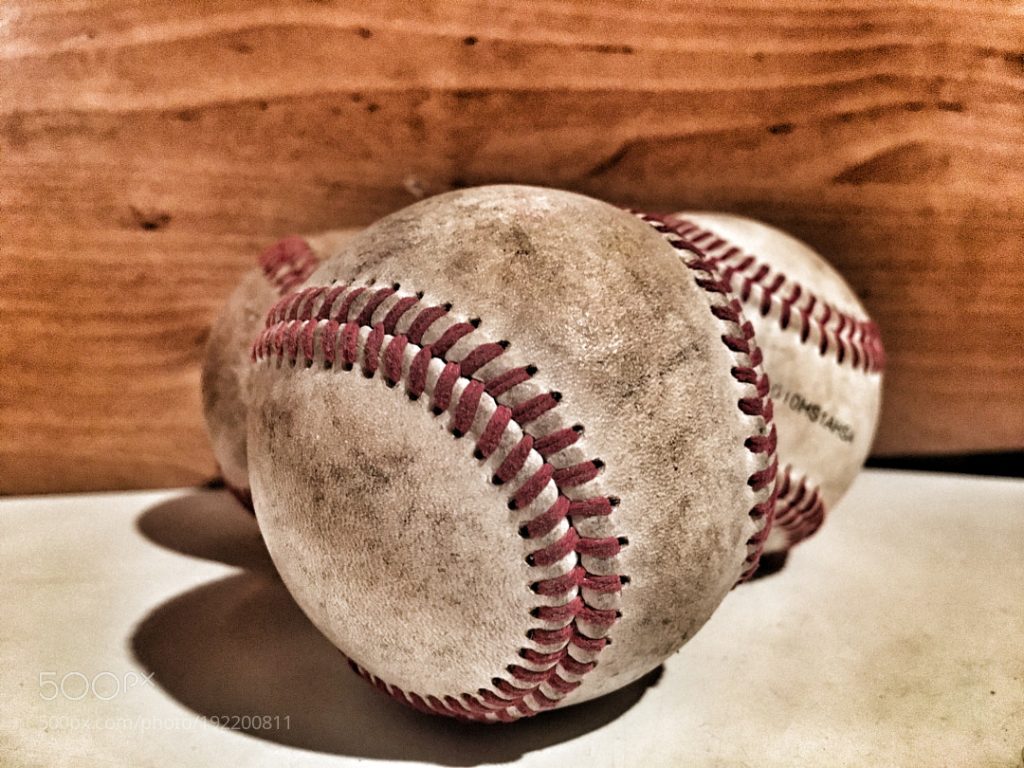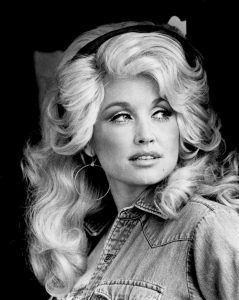Moses “Fleet” Walker was born on October 7, 1857 in Mount Pleasant, Ohio. His parents were Reverend Moses W. Walker, M.D. and Caroline Maria Simpson. Moses was the fifth oldest out of seven children. His family nicknamed him “Fleet” growing up in order to distinguish him from his father.1 Walker and the rest of his family were not considered an ordinary African American family. Due to his father being both a reverend and a physician, the Walkers were considered “free and educated blacks, with upper middle class economic advantages.”2 This would become one of the key reasons why Fleet never really witnessed racism in his childhood years.
The segregation of blacks from whites was the law in the former Confederate States. However, Walker grew up in Ohio, where segregation was practiced more informally. African American people were not allowed certain jobs and were not allowed to live in certain areas. However, Moses did not witness much of this growing up, because of his fathers’ status in society.3
Since Fleets’ father was a physician, he did not have to work growing up. This allowed him time to focus on school and on playing baseball in his free time. Fleet was a natural athlete and very intelligent. In school, he was expected to keep up his good grades and attend every day. He was introduced to baseball when he moved to Steubenville by a group of veterans from the Civil War period, who had actually helped Abner Doubleday in forming the game of baseball.4

When Fleet was ten years old, the National Association of Base Ball Players was created to form the very first baseball league. On December 11, 1867, 237 delegates met in Philadelphia to propose rules, salaries, and other considerations for their league.5 One of the major issues they had to deal with was whether they would allow multiple races into the league. Since this league was created in the North, they believed that the color line was necessary in order to have Southern States willing to join in on the league as well. Therefore, in the first set of rules for the league, their ruling read:
It is not presumed by your committee that any club who has applied are composed of persons of color or any portion of them and the recommendations of your committee in your report are based upon this view and they unanimously report against the admission of any club which may be composed of one of none colored person.6
Four years after this committee was created it was replaced by the National Association of Professional Baseball Players. They took out this rule and simply stated that it was a “gentlemen’s agreement” that blacks were not allowed in the league. As a child, Fleet was unaware that African Americans were not allowed in the League, as this became his childhood dream to turn baseball into a career.7
Growing up, Fleet played in integrated baseball teams, and he played the usual pick-up games in the neighborhood with his friends. When Fleet turned twenty in 1878, he and his family moved to Oberlin, Ohio due to a job promotion his father received. Here Moses started college at Oberlin College.8 When he started, there was no collegiate sports at Oberlin. However, in Fleet’s third year at Oberlin, it became the very first school to form a collegiate baseball program. Fleet’s first season was a success, and he earned recognition as “one of the best all-around college athletes in the land.”9 After his first season, Fleet left Oberlin to go to the University of Michigan to pursue a law degree and continue his baseball career there as a catcher. At Michigan, he and his brother both played for the team, but Fleet did exceptionally well. Fleet went on to play two years at the University of Michigan. He never ended up graduating because, at age twenty-five, Fleet was offered a professional baseball contract to play for the Toledo Baseball Club.10 At this time, in 1884, the league consisted of eight clubs in the Northwestern League. He accepted the contract and was the second player drafted into the league. Fleet made his major-league debut on May 5, 1884, and did outstanding in his first season. He led the team to win the very first league championship. With the creation of the league, they started to play teams from other parts of the country, and came up with what is now known as the World Series. Fleet and the rest of the Toledo Baseball Club were supposed to play the Chicago White Stockings for the championship. However, the manager of the White Stockings Adrian Anson refused to play if Fleet walked onto the field. This was the very first time Walker experienced racism in the Major Leagues.

Fleet was a catcher, and because he was African American, he was not allowed to catch with a glove, face mask, or chest protector. Reports said that Fleet’s hands were always blistered and bloody after games.11 This was one of many obstacles Fleet faced due to his race. Throughout his baseball career, Fleet was the target of fan abuse and from opposing players. Fans would throw food and other items, spit, and say harsh things to him while he would play. He also received threats from certain baseball clubs saying that if Fleet stepped foot in the stadium with a uniform on, men would be there ready to mob him. Due to the constant injuries from playing with no gear, Fleet never ended up playing in these cities.12
Although Fleet led the leagues, after having so many injuries, the Toledo Baseball Club released Walker in 1885. He then moved on to play for a minor league team in Cleveland. This team soon became banned because they broke the “blue law” of playing games on Sundays. Walker then moved to play in Waterbury, Connecticut in the Eastern Leagues. After playing one season, he moved again due to teammates not being cooperative with Fleet because of his race, to a team in Newark, New Jersey.13 On this team, he was signed with another African American player named George Stoney. After playing a season of sixty-nine games together, many fans and workers of the league started to make claims that blacks should be allowed to play everywhere. “They make the teams stronger and they bring in more business.”14 This was not the thinking of everyone, however, as the racism against Fleet continued. In a game against Chicago, the opposing players all walked off the field, leaving the game when they saw Fleet and Stoney warming up to play. Also, some of Fleet’s white teammates refused to take team photos if Fleet and Stoney were going to be in them. All the white pitchers on this team never listened to Fleet when he called pitches and threw whatever they wanted just to make Fleet look bad. This became a bit overwhelming, and many coaches in the league began to push to ban African Americans; and in 1885, they were all moved to an international league club in Syracuse. Fleet became the last known African American to play for the league in Syracuse. Blacks were no longer allowed in Major league clubs and had to be recruited into a minor-league team. Fleet was allowed to play for a minor-league club in Oconto, Wisconsin until his retirement in 1891.

Once retired, Fleet decided to buy a house in Syracuse to try and find work. Although he was very well educated, well known, and the son of a physician, the only work he could find was as a railroad worker. This really wasn’t how Fleet envisioned living out his life after baseball, but it was the only choice he had. In Syracuse, Fleet still experienced racism, both at work and around his neighborhood. On April 9, 1891, Fleet was having a drink after work in his neighborhood, when a white man approached him asking what he was doing in such a nice neighborhood and why he wasn’t out working somewhere. When Fleet ignored the man, he threw a rock at him and lunged at Fleet in attempt to assault him. In self-defense Fleet stabbed the man, killing him. Two months later all charges were dropped against Fleet, and he then moved back to Steubenville, Ohio.15 He then spent the remainder of his life managing an opera house with his brother before passing away on May 11, 1924 at the age of sixty-six.16
Fleet lived out the rest of his life with his family and away from a baseball field. Although Fleet is the very first African American baseball player and catcher, he is not really recognized as such because he played when the leagues were first forming in a time now called the “dead period.” This is the reason why Jackie Robinson is said to be the first African American in what is now called “modern baseball.” However, Fleet has been recognized in the Hall of Fame for his efforts in starting the league for players today. Moses “Fleet” Walker is very strong to have played as long as he did despite the racism he experienced throughout his career. He paved the way for players like Jackie Robinson and all that came after him to play in Major League Baseball.
- David W. Zang, Fleet Walker’s divided heart: The life of Baseball’s First Black Major Leaguer (Lincoln: University of Nebraska Press, 1998), 169. ↵
- Nudie E. Williams, “Footnote to Trivia: Moses Fleetwood Walker and the All-American Dream,” Journal of American Culture vol.11 (1988): 65. ↵
- Edward R. Lee, “Moses Fleetwood Walker,” Blackfax vol.9 (1999): 37. ↵
- Nudie E. Williams, “Footnote to Trivia: Moses Fleetwood Walker and the All-American Dream,” Journal of American Culture vol.11 (1988): 66. ↵
- Nudie E. Williams, “Footnote to Trivia: Moses Fleetwood Walker and the All-American Dream,” Journal of American Culture vol.11 (1988): 65-72. ↵
- Nudie E. Williams, “Footnote to Trivia: Moses Fleetwood Walker and the All-American Dream,” Journal of American Culture (2001): 65-72. ↵
- Nudie E. Williams, “Footnote to Trivia: Moses Fleetwood Walker and the All-American Dream,” Journal of American Culture vol.11 (1988): 66. ↵
- David W. Zang, Fleet Walker’s divided heart: The life of Baseball’s First Black Major Leaguer (Lincoln: University of Nebraska Press, 1998), 169. ↵
- Nudie E. Williams, “Footnote to Trivia: Moses Fleetwood Walker and the All-American Dream,” Journal of American Culture vol.11 (1988): 67. ↵
- Edward R. Lee, “Moses Fleetwood Walker,” Blackfax vol.9 (1999): 37. ↵
- Nudie E. Williams, “Footnote to Trivia: Moses Fleetwood Walker and the All-American Dream,” Journal of American Culture vol.11 (1988): 67. ↵
- Nudie E. Williams, “Footnote to Trivia: Moses Fleetwood Walker and the All-American Dream,” Journal of American Culture vol.11 (1988): 67. ↵
- David W. Zang, Fleet Walker’s divided heart: The life of Baseball’s First Black Major Leaguer (Lincoln: University of Nebraska Press, 1998), 169. ↵
- Nudie E. Williams, “Footnote to Trivia: Moses Fleetwood Walker and the All-American Dream,” Journal of American Culture vol.11 (1988): 68. ↵
- Edward R. Lee, “Moses Fleetwood Walker,” Blackfax vol.9 (1999): 37. ↵
- David W. Zang, Fleet Walker’s divided heart: The life of Baseball’s First Black Major Leaguer (Lincoln: University of Nebraska Press, 1998), 169. ↵



107 comments
Alexandra Cantu
Ive honestly never heard of Fleet, Im clear with other ball player who are always recognized. I believe that hard work does pay off and its always inspirational when an individual such as Fleet is persistent on his dream. Its so sad how then and sometimes now people are looked and criticized for their skin color and that should never be the case.Fleet should be recognized more for standing tall in what he loved.
Reese Lujan
Wow, my whole life I thought that Jackie Robinson was the first African American baseball player I had never heard of Jackie Robinson. This article finally gave credit where credits do to Fleet because most people like myself consider Jackie Robinson the first African American baseball player. Against all odds, he still pursued as a baseball player he didn’t care about the consequences he just wanted to accomplish his dreams and play the sport he loves.
Carlos Vazquez
Baseball is one of the most admired games in the united states. It is sad to see that the story of Moses “fleet” walker is not widely known. He was able to play the sport he loved even through the racism around the country. Thanks to people like him it opened the major leagues for people like Jackie Robinson to play. This article is very interesting and well written.
Grady Purcell
This article is very interesting to me because I never knew who Fleet was until now. I had no idea Jackie Robinson wasn’t the only one to overcome the odds of racism in professional baseball at the time. The conditions he went through just to play baseball were gruesome, like he couldn’t wear a glove to catch a baseball that was coming over 80+ mph, and he couldn’t wear catchers gear which was used to protect him. That alone is dangerous but no only was it on the field he was constantly getting bashed off the field as well whether it being verbally or physically assaulted. This article has taught me a lot of things and now I will always remember Moses “Fleet” Walker.
Maricela Guerra
I never heard of this Fleet, until today. I always thought that it was Jackie Robinson who was the first in the leagues. I consider Fleet the first African American in the league, even though it wasn’t considered an actual league. Even so he went out there and just played ball and didn’t let anyone tell him otherwise. Now that is a real team player.
Rafael Lopez-Rodriguez
It is crazy to say that Moses “Fleet” Walker is rarely mentioned in the baseball world. I find it sad after reading this article that he is not mentioned with names like Jackie Robinson and Roberto Clemente who broke color barriers in baseball. The story of Walker is inspirational for many if your a baseball fan and it is amazing that his legacy is being recognized in the hall of fame.
Arianna Kennet
I think this is an interesting article and a good topic to write about, because there are so many icons out there who aren’t given enough recognition and attention. It is so sad to see how because of the colour of ones skin, they are treated differently. It is nice to know how Fleet never gave up his dream and persevered to reach his goal, it clearly paid off.
Miranda Alamilla
It’s always very heartbreaking to read or experience things that have to do with racism, segregation, prejudice, etc. As human beings, the color on our skin should not determine what we are capable of doing. “Fleet” Walker is one of the many example of how we, as humans, let something as minute as color fog what’s really important in life. Whether it’s sports, educations, or work; as long the qualifications and hard work are there, we should be allowed to do what we set our minds to. Nobody should be allowed to invalidate anybody else’s dreams.
Elias Garza
I stand firm in belief that if a person is able to prove they qualify for something they should be saluted, not discriminated against. I am a big fan of baseball and I appreciate what all the minors went through in order to create this game in America. If they did not get through what they went through maybe baseball would not be a sport that consist of different races. And because of things happened the way they did, I was able to play baseball growing up.
Cristina Cabello
It is really terrible how people can treat each other. Everyone has a goal in life and wants to pursue them. So why should people try to discourage or destroy others? Why can’t the world just help each other to become better? But everything happens for a reason. People need to get hurt in order to get stronger. This article did a great job at describing Fleet’s journey.